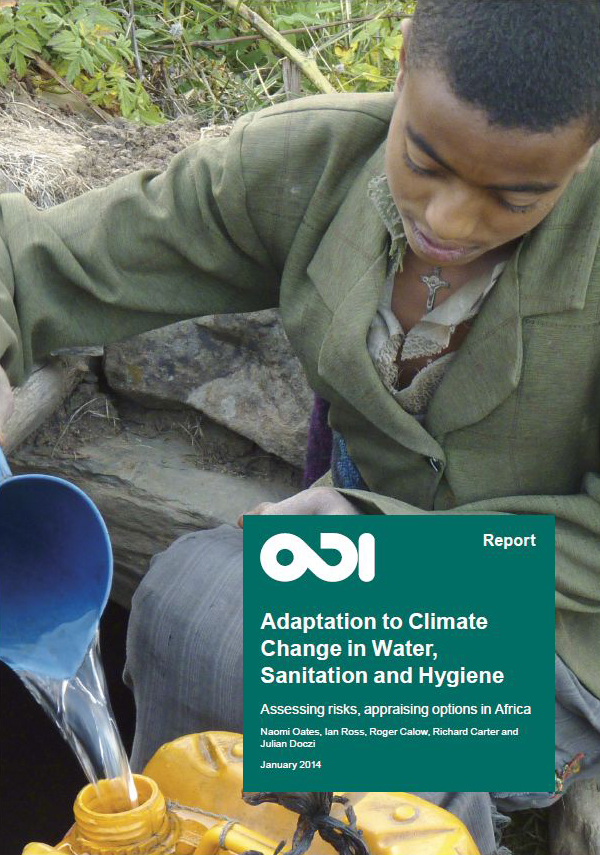
odi.org.uk - March 2014
Water will be the main channel through which the impacts of climate change will be felt by people, ecosystems and economies. However, predicting impacts on the availability and quality of freshwater resources, and on water-dependent services and sanitation, remains difficult.
While there is a high level of confidence in the processes linking emissions to global warming, much less is known about how warming will affect changes in rainfall, runoff, groundwater recharge and climate extremes.
This reflects challenges with the downscaling of climate models, but also the significance of intervening factors, such as changes in land cover, which may have a greater influence on local systems and services than climate change. In general, the level of confidence in climate change projections decreases as their potential utility for making decisions on how to adapt increases.
This report presents the findings of research into the risks to delivery of WASH results posed by climate change in Africa, drawing on rapid case study reviews of WASH programming in Malawi, Sierra Leone and Tanzania. A separate Case Study Report provides further detail on country background and findings.
Recent Comments